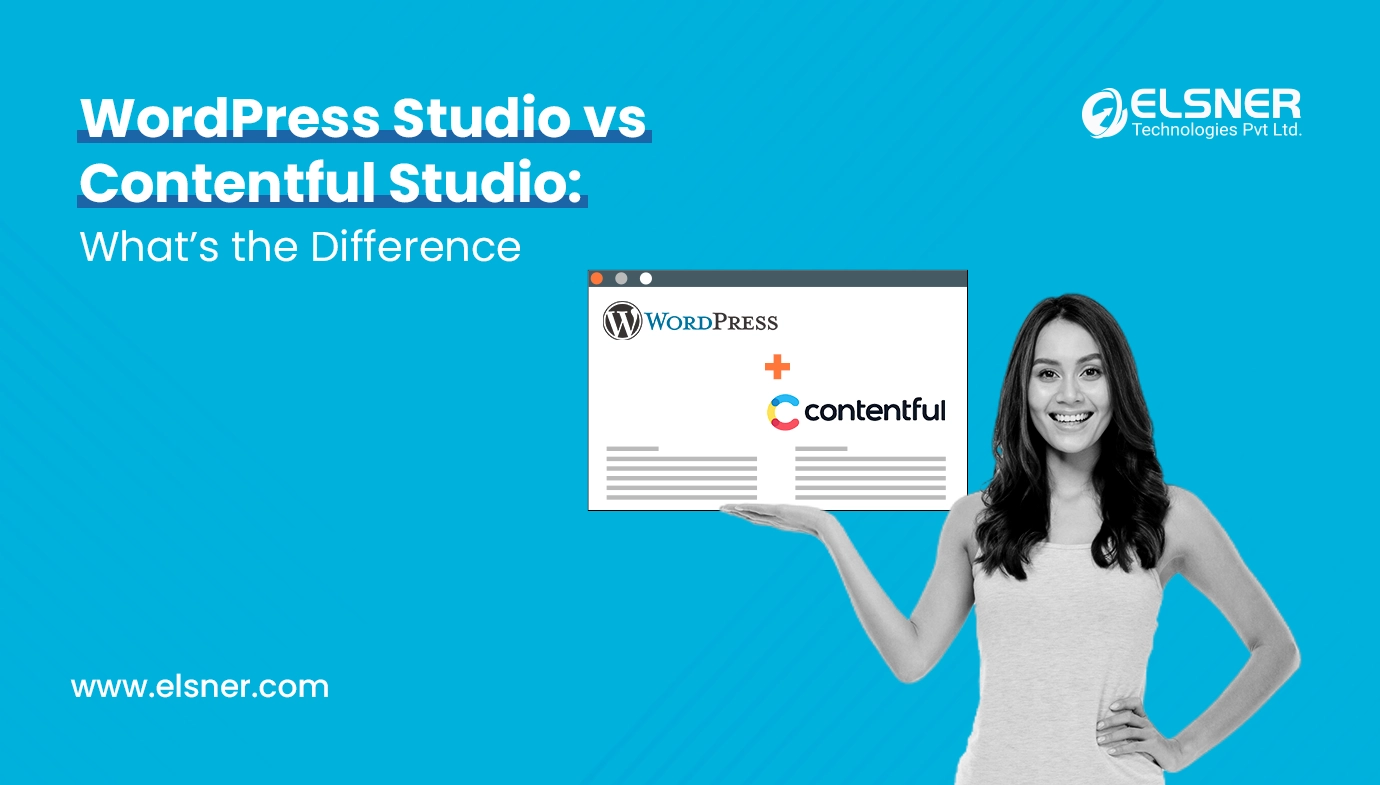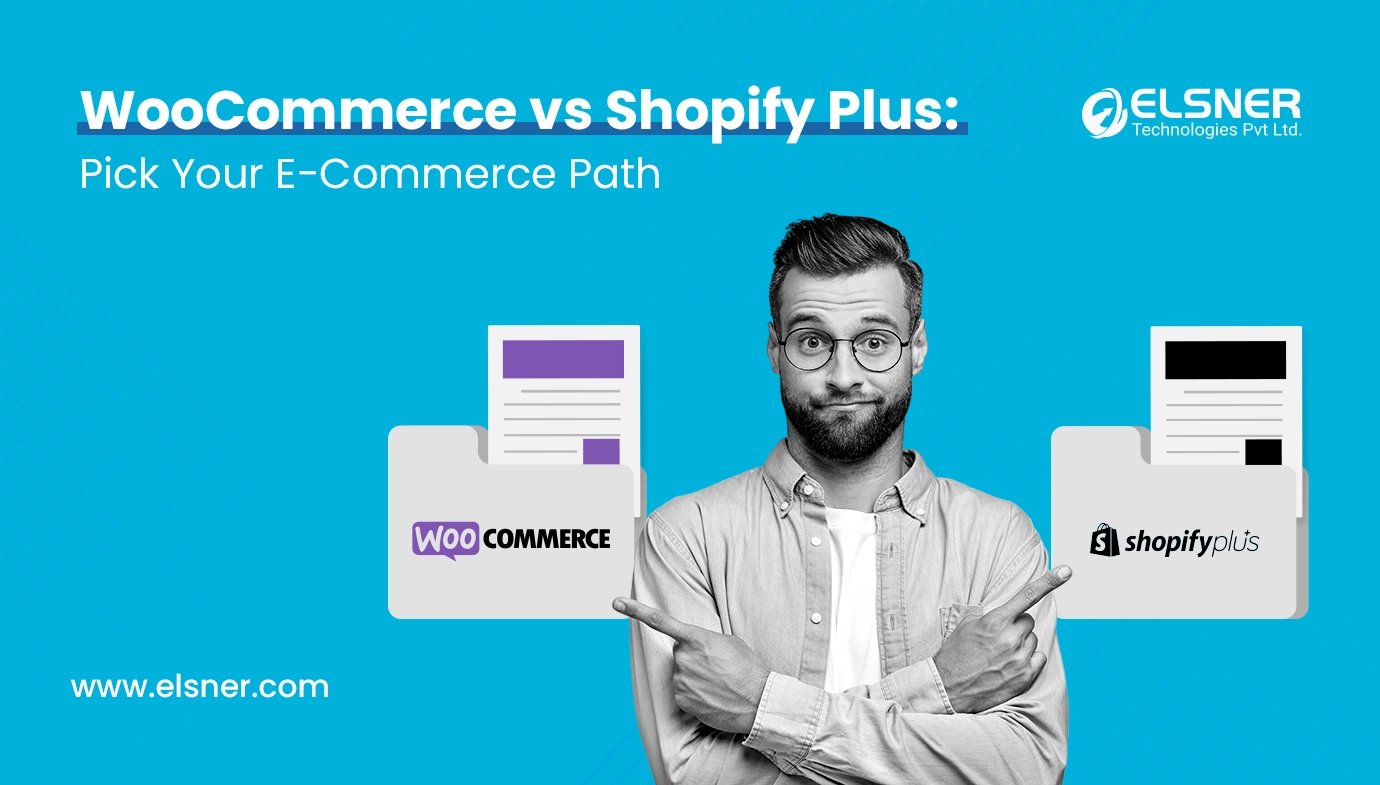At the dawn of E-Commerce culture, it was a bit complex for people to get along with the idea of launching their online stores. In 2024, if your brand store doesn’t have an online presence, you are probably missing out on great earning opportunities. As of today, there are several platforms available for you to get your online store developed in no time.
Shopify and WordPress development services are immensely popular as far as leveraging E-Commerce platforms is considered. They are among the two most preferred go-to options for entrepreneurs to start their online store. As Shopify is a completely dedicated E-Commerce platform, WordPress has its WooCommerce plugin to offer a similar service.
But, which of these two platforms is suitable for you to start your online store? It is a big-time question raised by most budding entrepreneurs, as both platforms are loaded with features and functionalities. If you are one among those entrepreneurs with the same dilemma in mind about choosing between Shopify and WordPress, this article is for you!
Read along this post till the end, and you will get a comparative understanding of the strengths and suitability of both platforms. In the end, you will be able to decide upon what would go well with your business needs better.
What is the General Overview of Shopify and WordPress?
Before getting into the depth of the comparison factors, here is the general definition of WordPress and Shopify associated with starting an online store.
Shopify:
Believe it or not, most entrepreneurs count on Shopify store development services as their first preference when they plan on starting an E-Commerce business. This platform is infused with amazing features that empower individuals and businesses to create or manage online stores.
As of today, Shopify is one of the leading platforms, ideal for you to launch, customize, and grow your E-Commerce business outstandingly. It comes with diverse built-in tools for promoting cybersecurity, secured payment, inventory management, website designing, etc. Furthermore, you also get a lot of themes or apps for further customizing the site.
WordPress:
For you to know, WordPress is one of the most versatile CMS platforms that has now become a powerful tool to build interactive websites. You can create all types of websites on WordPress, including E-Commerce. It offers a WooCommerce plugin, which, when integrated, converts the WordPress CMS dashboard into an E-Commerce store management portal.
Apart from that, there are specific WooCommerce plugins available at the official and third-party marketplaces for you to improve your E-Commerce store functionalities. The adaptability, community support and user-friendliness quotient is high for WordPress, as it is the powerhouse for millions of sites online.
What are the Comparison Factors for Shopify and WordPress?
Here are different comparison factors that will help you better understand the differences between Shopify and WordPress. This way, you will be able to decide whether to go with a Shopify or WordPress development company to get started with your online store:
1. Ease-of-Use:
Shopify boasts its easy usability as a standout feature, as it has a visually intuitive interface, which makes it easy for you to customize your store. Not only that but adding products or managing inventory is also easier with Shopify’s built-in tools. But, it is still advised to have a professional look after your Shopify store management needs to free you up for focusing on core operations.
Talking about ease of use, Shopify comes with drag-and-drop features that make the platform accessible even for people who aren’t proficient in coding. However, using just the limited and easy-to-use features will limit your capabilities of customizing the store and making it unique. Therefore, you might need the help of Shopify custom development experts to integrate custom apps and enhance your store’s functions to make it unique in the market.
On the other hand, WordPress is also renowned for its immense user-friendliness, especially while building traditional websites. But, as far as E-Commerce is concerned, WordPress isn’t that easy to access. And that’s because you will first have to integrate the WooCommerce plugin into your WordPress CMS. Even though WooCommerce is user-friendly to an extent, it still demands more expertise than Shopify.
Undoubtedly the customization possibility on WordPress for scaling your E-Commerce store functions is vast. But, it might somehow be overwhelming for most of the beginners. You might have to hire a WordPress developer and let them deal with the entire WooCommerce store configuration process. They will help you attain flexibility in designing your store, but the overall process might demand more time and added effort.
2. Design & Customization:
With Shopify, you get to choose from a diverse range of templates that are designed and uploaded by professionals in the business. And these templates are not just aesthetically astounding but are also responsive for all screen sizes. Shopify offers you the feasibility of customizing the store’s appearance using its built-in design tools. But, you can hire Shopify developers and let them make quick technical changes to further add that unique appeal.
Making changes to the store’s fonts, layout, colors or other such basic things will demand no expert supervision. But, if you are willing to change the entire theme, modify the navigation, and optimize the checkout process, you might need the help of custom Shopify developers. They would suggest the best apps from the official App Store and integrate them. This will help improve your store experience for the end-users and give you an upper hand in managing it.
WordPress also comes with a big library of plugins and themes for you to enhance the functionalities of your websites. Upon using the WooCommerce plugin, you will be able to turn around your WordPress dashboard into a functional e-commerce store. There are dedicated WooCommerce themes available for you to customize and create a unique appeal. And with the diverse plugins, there’s no limit on extending your functionality.
Upon taking the help of WordPress developers with coding proficiency, there is no limit on customizations for you on this platform. The best part is you will acquire immense control over your E-Commerce site and the plugins. But, as far as budding E-Commerce entrepreneurs are concerned, the design and customization options on WordPress might be too overwhelming for them. Therefore, Shopify is the first preference for all new E-Commerce entrepreneurs.
3. Dedicated E-Commerce Features
Shopify is a clear winner in this comparison factor, as it is a dedicated E-Commerce platform meant to offer you core features for the domain. For instance, you get inventory management, product listing, payment gateway and other such features that are focused only on running an online store. It also has an official App Store, where there are several apps, capable enough to help you scale your store functions.
In short, Shopify tends to simplify your overall E-Commerce management tasks, making it a one-stop hub for you to run your business successfully. Not only that, but you can also hire Shopify experts to create custom apps and add unique functionalities to your online store. This way, you will also have the chance to stand out in the crowd of several other Shopify store owners who share the same niche as yours.
WordPress isn’t an E-Commerce store in specific, as you must integrate the WooCommerce plugin for the same. There is no doubt that WordPress is immensely customizable and powerful for creating, running, and managing a website. But, as far as WooCommerce is concerned, you might have to integrate a lot of additional plugins to attain similar functionalities as that of Shopify.
However, adding too many plugins or add-ons will eventually increase the configuration or maintenance efforts for managing a WooCommerce store. If you have some specific E-Commerce requirements without any plans to explore the customization possibilities, WordPress can be a perfect platform for you to count on.
4. SEO Friendliness
Both Shopify as well as WordPress are optimized for SEO, with dedicated features. Shopify offers you features such as customizable meta tags, clean URLs, and title tags. On the other hand, WordPress offers you plugins such as Rank Math, All in One SEO, and Yoast SEO to help you gain more control over the SEO aspects of site content.
With the help of your Shopify store developer, you will be able to optimize the technical SEO aspects conveniently and improve mobile responsiveness and page speed. However, Shopify lacks some of the advanced SEO capabilities such as modification of site structure or canonical tags.
WordPress lets you optimize the structure of your site to enhance its performance and make it more findable across search engines. If you want to master the SEO efficacies of your new store, it is better to stick to WooCommerce.
Final Verdict
If you have an E-Commerce business idea booming in your mind, and you are determined enough to execute the same, choosing the right platform can be an important decision. With this article, you are now aware of the efficacies associated with two of the most popular E-Commerce platforms, WordPress and Shopify.
Both have their share of positives and negatives, well elaborated in these comparison factors. So, depending on the features, development proficiency, and customization possibilities of both platforms, decide on what aligns better with your business idea.
If needed, seek the help of professional WordPress or Shopify development services to determine further in-depth technical aspects of both platforms and finally decide on one!










